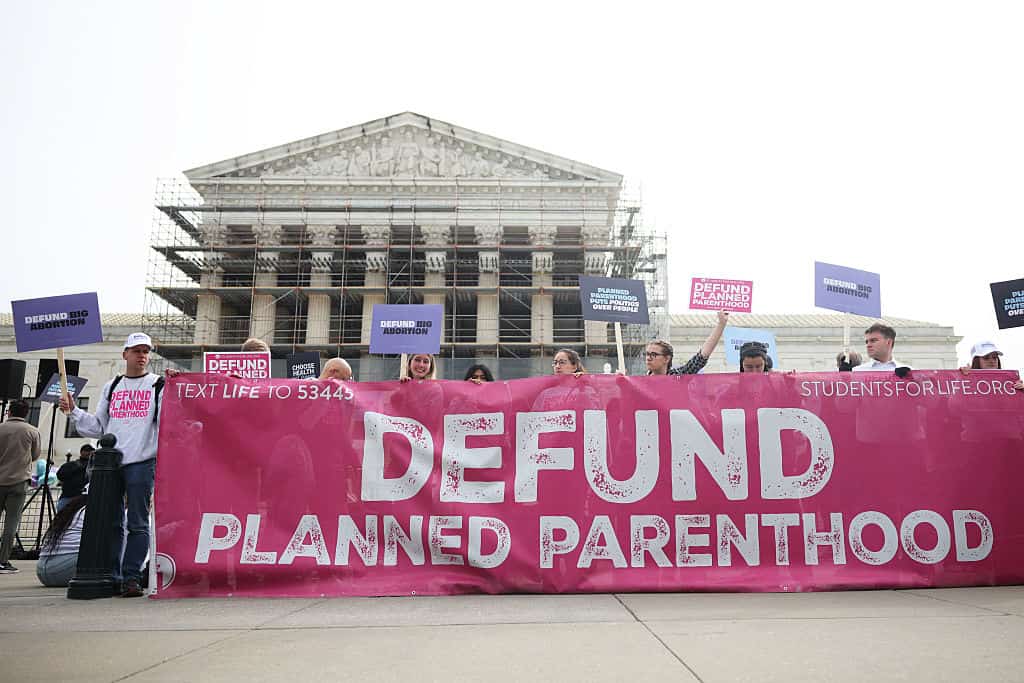Other States Looking to Duplicate Successful Texas Heartbeat Bill

The success – thus far – of Texas’ heartbeat bill banning abortion after a fetal heartbeat can be detected has motivated some other pro-life states to consider emulating it. Politicians in at least a half dozen states have voiced interest in either studying the feasibility of introducing a similar bill in their state or are already planning to do so at the first opportunity.
South Dakota Governor Kristi Noem tweeted on Thursday, September 2, “Following the Supreme Court’s decision to leave the pro-life TX law in place, I have directed the Unborn Child Advocate in my office to immediately review the new TX law and current South Dakota laws to make sure we have the strongest pro-life laws on the books in SD.”
The Associated Press reports that in addition to South Dakota, at least five other states are interested in possibly duplicating the Texas law – Mississippi, Arkansas, Florida, Indiana and North Dakota.
It’s not that “heartbeat bills” have not been attempted before. Alabama, Arkansas, Georgia, Iowa, Kentucky, Mississippi, Missouri, North Dakota, Ohio, South Carolina, Tennessee have all passed them, but have seen them blocked in the courts. A couple other states have passed such laws but made them contingent on other state’s heartbeat bills being upheld in the courts.
As we’ve previously reported, what makes the Texas law so different from previous heartbeat bills that have been blocked in the courts is that it contains a “private enforcement” mechanism. The Texas law encourages private citizens to sue an abortionist who violates the law, and it specifically prohibits any Texas law enforcement official from doing so.
What makes the Texas version of a heartbeat bill different?
Practically speaking, the Texas law gives the courts no identifiable person to issue an injunction to, ordering them not to enforce the law while the court examines the constitutionality of it via a trial and examination of the evidence. That’s how those injunctions usually work. You can’t “enjoin” a law; you can only enjoin a person.
So, until such time as some private citizen steps forward to initiate a lawsuit against an abortionist, the Texas law is difficult to block. And a successful lawsuit subjects the abortionist to a $10,000 damage award in favor of the person bringing the lawsuit.
The abortion industry – even as wealthy as it is – isn’t used to taking such risks. Typically, the abortionist asks a court for an injunction against the state attorney general or other law enforcement official who would be tasked with enforcing the law. That allows the abortion industry to block pro-life laws before they go into effect.
That’s why the U.S. Supreme Court rejected Planned Parenthood’s request for an emergency injunction earlier this week. The high court’s action doesn’t mean the Texas law will ultimately be found to be constitutional. That’s unlikely until Roe v. Wade is overturned.
But the good news is that the Supreme Court will be looking at that very issue in this fall’s big abortion case coming before the justices, Dobbs v. Jackson Women’s Health Organization. A Mississippi law banning abortions after 15 weeks gestation is being challenged, and the high court is being asked to uphold that law, and, in the process, overturn Roe.
No matter how long the Texas law remains in effect, the fact is that lives are being saved – as many as 150 babies per day. That’s a lot of beating hearts of children made in the image of God. Please pray for the hearts of mothers with unexpected pregnancies in that state, who may need help and support in choosing life for their babies.
And pray for the continued success of the Texas law, and for the Supreme Court to uphold Mississippi’s 15-week ban this fall while overturning Roe v. Wade.
Photo from Shutterstock.
ABOUT THE AUTHOR

Bruce Hausknecht, J.D., is an attorney who serves as Focus on the Family’s judicial analyst. He is responsible for research and analysis of legal and judicial issues related to Christians and the institution of the family, including First Amendment freedom of religion and free speech issues, judicial activism, marriage, homosexuality and pro-life matters. He also tracks legislation and laws affecting these issues. Prior to joining Focus in 2004, Hausknecht practiced law for 17 years in construction litigation and as an associate general counsel for a large ministry in Virginia. He was also an associate pastor at a church in Colorado Springs for seven years, primarily in worship music ministry. Hausknecht has provided legal analysis and commentary for top media outlets including CNN, ABC News, NBC News, CBS Radio, The New York Times, the Chicago Tribune, The Washington Post, The Washington Times, the Associated Press, the Los Angeles Times, The Wall Street Journal, the Boston Globe and BBC radio. He’s also a regular contributor to The Daily Citizen. He earned a bachelor’s degree in history from the University of Illinois and his J.D. from Northwestern University School of Law. Hausknecht has been married since 1981 and has three adult children, as well as three adorable grandkids. In his free time, Hausknecht loves getting creative with his camera and capturing stunning photographs of his adopted state of Colorado.
Related Posts

New York Ends Fight to Force Nuns to Pay for Abortions
January 27, 2026



